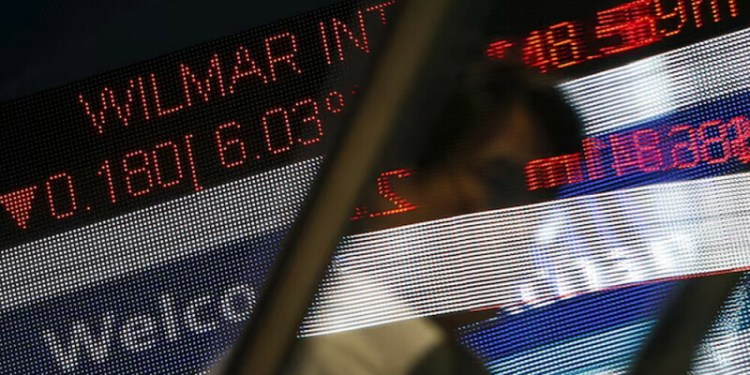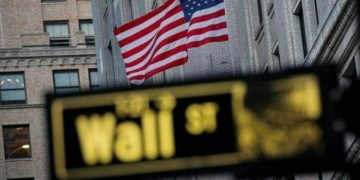Fueled by low gasoline prices and easier credit, the U.S. auto industry pulled its recent winning streak into 2015 with a projected 15% monthly increase compared with a year earlier.
January’s volume suggests annual auto sales are tracking well above the pace set last year. General Motors Co. , Ford Motor Co. and Fiat Chrysler Automobiles NV all notched year-over-year increases in excess of 13%, and major Japanese auto makers had similar gains in what is typically a slower month for sales.
“Consumers feel good because more people are working, the U.S. economy is expanding and fuel prices are low,” GM sales chief Kurt McNeil said. GM, which reports earnings for its fourth quarter on Wednesday, is riding the strong American car market to strong earnings momentum, helping offset weakness abroad.
While January was hot, it was a bit weaker than the headline numbers suggest due to one more selling day this time around. And, the comparison to January 2014 was further aided by the storms and cold spell that crippled large parts of the nation a year ago.
Overall results of U.S. auto sales for the month were still being tallied midday Tuesday. The annualized pace of sales is projected to have increased 8.4% during the month, according to analysts at Morgan Stanley . If that rate holds through the year, U.S. auto sales will exceed 17 million for the first time in more than a decade.
U.S. sales of Daimler AG ’s Mercedes-Benz brand rose nearly 9% to 24,619, BMW AG reported its namesake brand’s sales rose 4% to 18,981 and Audi AG reported a 14.3% increase to 11,541.
The fundamentals of the industry remain strong, analysts and auto executives said. Auto makers, helped by plant closures and restructuring during the recession, are now in a far stronger position to manage fluctuations in production demands.
Factory utilization, for instance, is at an all-time high, according to WardsAuto.com. This helps make factories more profitable, and unsold-car inventories remain in check, reducing the temptation to flood the market with vehicles no one wants to buy and lessening the need for large-scale discounts.
Automotive information provider Kelley Blue Book said transaction prices of new light vehicles are up 5% compared with a year ago to $33,993, although they fell 1.7% from December. TrueCar estimates average incentive spending, including rebates and discounts, was $2,642 during the month. That is a decline of 10% compared with December’s numbers, but up 3.6% over January 2014.
Gas prices, sitting at about $2 gallon, are helping juice demand for trucks and SUVs that consume more fuel but also deliver higher margins. Some buyers are using savings from lower fuel costs to purchase pricier options or come into the market sooner than otherwise planned.
“Low fuel prices provide a significant boost to consumer disposable income,” Ford economist Emily Kolinski Morris said. She noted low interest rates are also helping, and “are likely to remain a prominent feature of the near-term outlook.”
January’s results reinforce the view that the domestic auto industry is among the healthiest industrial pockets in the world. GM, the market leader, reported a January increase of 18% as it rides a tailwind provided from the recent redesign of its full-size trucks and SUVs, including the Cadillac Escalade and Chevrolet Silverado.
Ford said it posted its best January retail sales since 2004, a 13% increase from the year-ago period. Sales of the company’s F-series pickup truck grew about 17% during the month as it continued to ramp up supplies of the redesigned truck.
Toyota Motor Corp., the third largest U.S. seller after GM and Ford, said sales of its three brands rose 16% to 169,194 vehicles. It said its light trucks, which include SUVs, rose more than 18%.
Nissan Motor Co. recently launched new crossovers and SUVs that helped it overtakeHonda Motor Co. for fifth place in the U.S., edging its Japanese rival by about 2,000 vehicles last month. Its total sales were up 15% to 104,107 vehicles. Hyundai Motor Co. said its U.S. sales were up 1% over a year ago to 44,505 vehicles.
Volkswagen AG, which apart from its luxury Audi brand has struggled in the U.S., reported sales of its namesake brand rose just 10 vehicles from a year ago, to 23,504.
Fiat Chrysler, which along with GM was bailed out by taxpayers in 2009, has been the fastest-growing car maker in America due to demand for its Jeep SUVs and Ram pickup trucks. Its sales were up 14% to 145,007 last month.
– WSJ



























